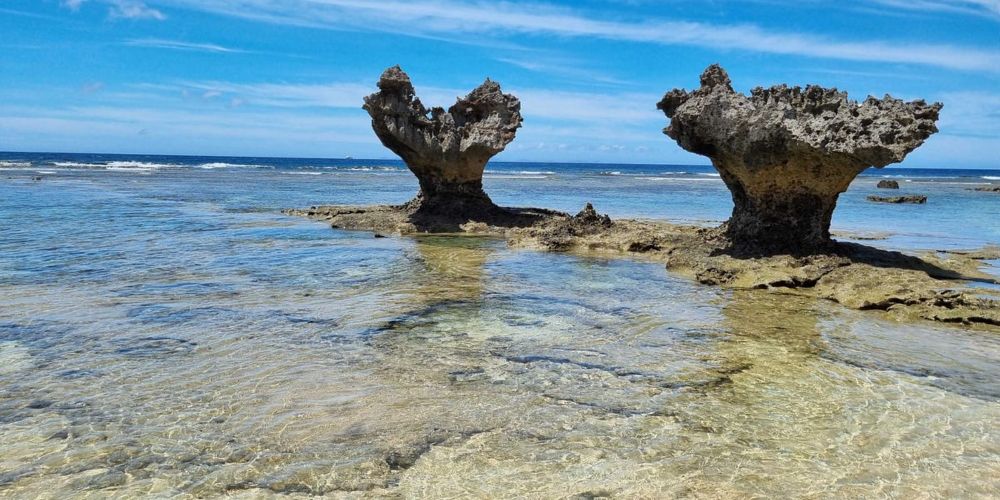

🔬El #CSIC ha presentado hoy un informe que documenta los daños ambientales y geológicos tras el incendio de #LasMédulas
📒El documento, que reúne el trabajo de más de 70 especialistas, es clave para la recuperación postincendio
➡️ tiny.cc/mp6y001
27.01.2026 13:24 —
👍 19
🔁 7
💬 0
📌 1

🔥This is no news, but #soil #erosion after #wildfires matters and #mitigation works.
🌾 Straw mulch vs. no treatment after several storms in 1 month:
✅ Mulched (left): 4.65 kg sediment
❌ Untreated (right): 40 kg (≈10× more!)
Soil erosion mitigation must be among the priorities in post-fire management
13.11.2025 09:37 —
👍 3
🔁 0
💬 0
📌 0

A table showing profit margins of major publishers. A snippet of text related to this table is below.
1. The four-fold drain
1.1 Money
Currently, academic publishing is dominated by profit-oriented, multinational companies for
whom scientific knowledge is a commodity to be sold back to the academic community who
created it. The dominant four are Elsevier, Springer Nature, Wiley and Taylor & Francis,
which collectively generated over US$7.1 billion in revenue from journal publishing in 2024
alone, and over US$12 billion in profits between 2019 and 2024 (Table 1A). Their profit
margins have always been over 30% in the last five years, and for the largest publisher
(Elsevier) always over 37%.
Against many comparators, across many sectors, scientific publishing is one of the most
consistently profitable industries (Table S1). These financial arrangements make a substantial
difference to science budgets. In 2024, 46% of Elsevier revenues and 53% of Taylor &
Francis revenues were generated in North America, meaning that North American
researchers were charged over US$2.27 billion by just two for-profit publishers. The
Canadian research councils and the US National Science Foundation were allocated US$9.3
billion in that year.

A figure detailing the drain on researcher time.
1. The four-fold drain
1.2 Time
The number of papers published each year is growing faster than the scientific workforce,
with the number of papers per researcher almost doubling between 1996 and 2022 (Figure
1A). This reflects the fact that publishers’ commercial desire to publish (sell) more material
has aligned well with the competitive prestige culture in which publications help secure jobs,
grants, promotions, and awards. To the extent that this growth is driven by a pressure for
profit, rather than scholarly imperatives, it distorts the way researchers spend their time.
The publishing system depends on unpaid reviewer labour, estimated to be over 130 million
unpaid hours annually in 2020 alone (9). Researchers have complained about the demands of
peer-review for decades, but the scale of the problem is now worse, with editors reporting
widespread difficulties recruiting reviewers. The growth in publications involves not only the
authors’ time, but that of academic editors and reviewers who are dealing with so many
review demands.
Even more seriously, the imperative to produce ever more articles reshapes the nature of
scientific inquiry. Evidence across multiple fields shows that more papers result in
‘ossification’, not new ideas (10). It may seem paradoxical that more papers can slow
progress until one considers how it affects researchers’ time. While rewards remain tied to
volume, prestige, and impact of publications, researchers will be nudged away from riskier,
local, interdisciplinary, and long-term work. The result is a treadmill of constant activity with
limited progress whereas core scholarly practices – such as reading, reflecting and engaging
with others’ contributions – is de-prioritized. What looks like productivity often masks
intellectual exhaustion built on a demoralizing, narrowing scientific vision.

A table of profit margins across industries. The section of text related to this table is below:
1. The four-fold drain
1.1 Money
Currently, academic publishing is dominated by profit-oriented, multinational companies for
whom scientific knowledge is a commodity to be sold back to the academic community who
created it. The dominant four are Elsevier, Springer Nature, Wiley and Taylor & Francis,
which collectively generated over US$7.1 billion in revenue from journal publishing in 2024
alone, and over US$12 billion in profits between 2019 and 2024 (Table 1A). Their profit
margins have always been over 30% in the last five years, and for the largest publisher
(Elsevier) always over 37%.
Against many comparators, across many sectors, scientific publishing is one of the most
consistently profitable industries (Table S1). These financial arrangements make a substantial
difference to science budgets. In 2024, 46% of Elsevier revenues and 53% of Taylor &
Francis revenues were generated in North America, meaning that North American
researchers were charged over US$2.27 billion by just two for-profit publishers. The
Canadian research councils and the US National Science Foundation were allocated US$9.3
billion in that year.

The costs of inaction are plain: wasted public funds, lost researcher time, compromised
scientific integrity and eroded public trust. Today, the system rewards commercial publishers
first, and science second. Without bold action from the funders we risk continuing to pour
resources into a system that prioritizes profit over the advancement of scientific knowledge.
We wrote the Strain on scientific publishing to highlight the problems of time & trust. With a fantastic group of co-authors, we present The Drain of Scientific Publishing:
a 🧵 1/n
Drain: arxiv.org/abs/2511.04820
Strain: direct.mit.edu/qss/article/...
Oligopoly: direct.mit.edu/qss/article/...
11.11.2025 11:52 —
👍 641
🔁 452
💬 8
📌 66

We are pleased to share the Statement of #FUEGORED, drafted as a #scientific and multidisciplinary response to the devastating #wildfires that affected the #Iberian #Peninsula during the summer of #2025. The full statement can be found in #Spanish, #Portuguese, and #English in fuegored.weebly.com
04.11.2025 11:30 —
👍 1
🔁 1
💬 0
📌 0

🔥 Excited to convene our #EGU26 session
“Managing Wildfires in a Changing World” with Carmen Sánchez García, @agirona.bsky.social & Martinho Martins
Early career fee waiver deadline: Dec 2–11.
Info 👉 lnkd.in/dzUEyHpg
DM me if in doubt!
#Wildfires #Climate #Soil
@egu-sss.bsky.social @egu.eu
30.10.2025 16:42 —
👍 4
🔁 2
💬 0
📌 1

🚀 The #EROSINK project is in full throttle!
This week, we (@imibasturias.bsky.social - @csic.es) have been out in the field installing the last set of plots to study post-fire #soil organic #carbon #erosion, working closely with our amazing colleagues at @mbgcsic.bsky.social Stay tuned for results!🔥
08.10.2025 11:55 —
👍 10
🔁 2
💬 0
📌 0

La semana pasada, investigadores del @imibasturias.bsky.social, como parte del Grupo de Asesoramiento en Emergencias (GADE) del @csic.es , estuvimos evaluando el #riesgo de #erosión post-incendio en la zona afectada por el #incendio de #Yeres (León), que alcanzó parte del entorno de Las Médulas.
22.09.2025 14:15 —
👍 8
🔁 1
💬 0
📌 0

🌍 #EUROSOIL 2025 starts tomorrow!
On Monday I’ll have two presentations focused on post-fire #soil #erosion🔥:
🎤 Oral: #271 The role of post-fire soil erosion in the #carbon cycle
🖼️ Poster: #273 What do we know about post-fire soil erosion #mitigation
📍Let's connect!
07.09.2025 04:59 —
👍 5
🔁 1
💬 0
📌 0

🌍 What a week! I helped organize the 1st European Soil Judging Contest (#ESJC) in Alcoi, an amazing experience with students and soil scientists from Europe and the USA.
Now shifting gears for #EUROSOIL2025!
#Soil #SoilScience #EnvironmentalScience #suelo #cienciadelsuelo
06.09.2025 14:36 —
👍 4
🔁 1
💬 0
📌 0

🌍 ¡Empieza el European Soil Judging Contest 2025 en Alcoi!
Una semana para compartir ciencia, pasión y mucho suelo con equipos de toda Europa.
¡Gracias a quienes lo hacen posible!
#ESJC2025 #CienciaDelSuelo #SoilJudging #soil #soilscience #suelo
01.09.2025 13:34 —
👍 5
🔁 2
💬 0
📌 0

🔥No summer rest for field #wildfire research! Kickstarting a collaboration between @imibasturias.bsky.social & @uaveiro.bsky.social under the #EROSINK Project.
⚒️ Setting up plots to study post-fire #soil #carbon #erosion.
🙌 Kudos to Martinho, Ana Isabel, Elena & Chakib!
👩🎓 First site for Elena’s PhD!
29.08.2025 09:51 —
👍 4
🔁 0
💬 0
📌 0

5 Graphics Explain the Climate-Fire Feedback Loop
Climate change is making forest fires worse, and vice-versa — creating a vicious "climate-fire feedback loop" that has helped fuel record burns in recent years.
🌲🧯Forest fires are increasing. Does climate change play a role?
The short answer? Yes, it does.
The hotter, drier conditions create the vicious "climate-fire feedback loop," leading to more devastating and frequent fires. Get the long answer👉 go.wri.org/climate-fire-loop-bs
06.08.2025 08:20 —
👍 13
🔁 6
💬 1
📌 1
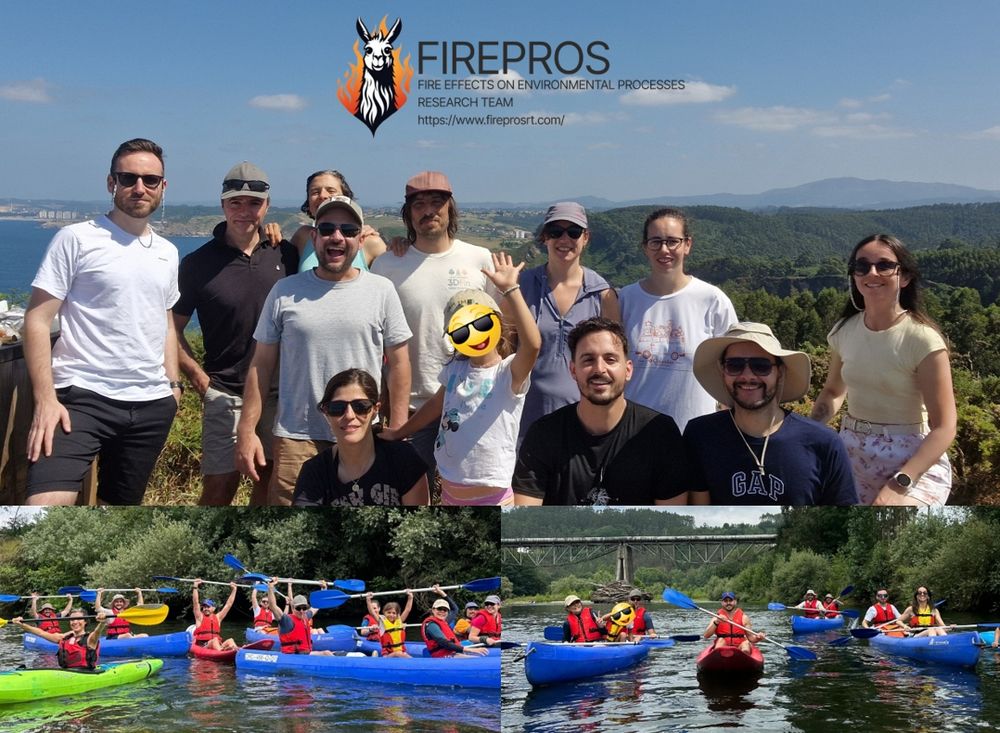
Kayaked down the Nalón River with the FIREPROS team (www.fireprosrt.com) and friends last weekend! 🚣♂️🌿🔥
Great vibes, stunning views, and awesome teamwork. More adventures to come!
30.07.2025 14:48 —
👍 2
🔁 1
💬 0
📌 0
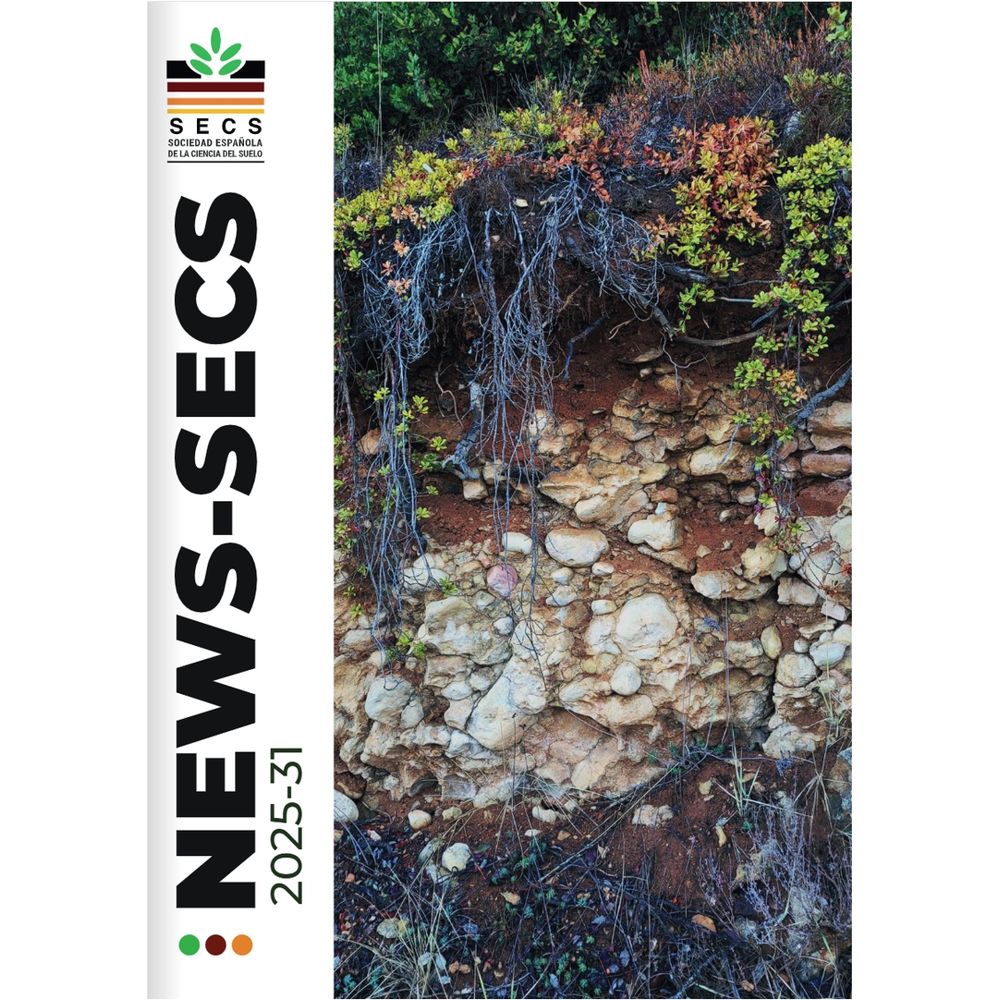
📢 ¡Nuevo NEWS-SECS disponible!
Ya puedes leer el nº 31 (julio 2025) con noticias sobre proyectos, congresos, actividades territoriales y reconocimientos a socios.
📥 www.secs.com.es/news-secs/
#SECS #CienciaDelSuelo #NEWSSECS #SueloEsVida #SoilScience
30.07.2025 08:15 —
👍 3
🔁 1
💬 0
📌 0
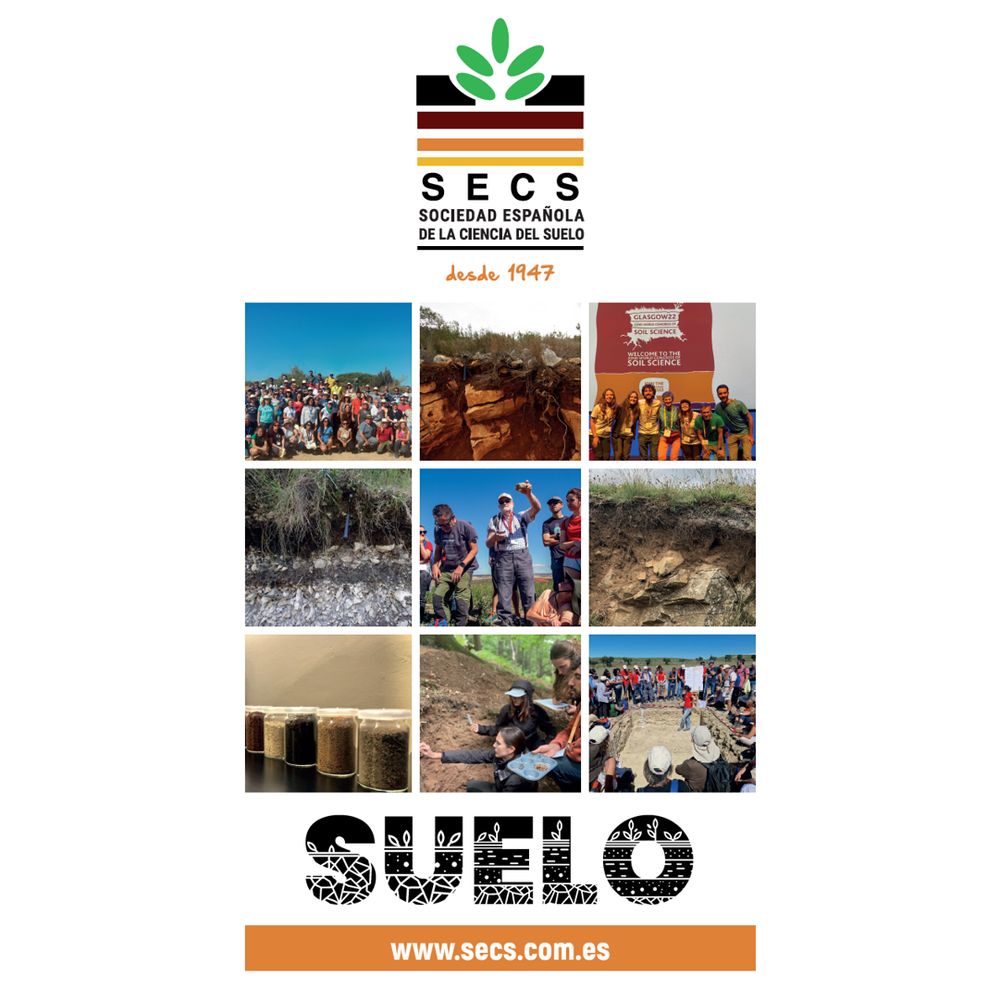
🌍 ¿Te interesa el suelo? ¡Hazte socio/a de la SECS! 🌱
Únete a esta comunidad científica y descubre sus beneficios!
📬 Más info: www.secs.com.es
#HazteSocioSECS #CienciaDelSuelo #SECS #SuelosDeEspaña #DivulgaciónCientífica #MedioAmbiente #suelo #suelos #haztesocio
28.07.2025 09:45 —
👍 3
🔁 1
💬 0
📌 0
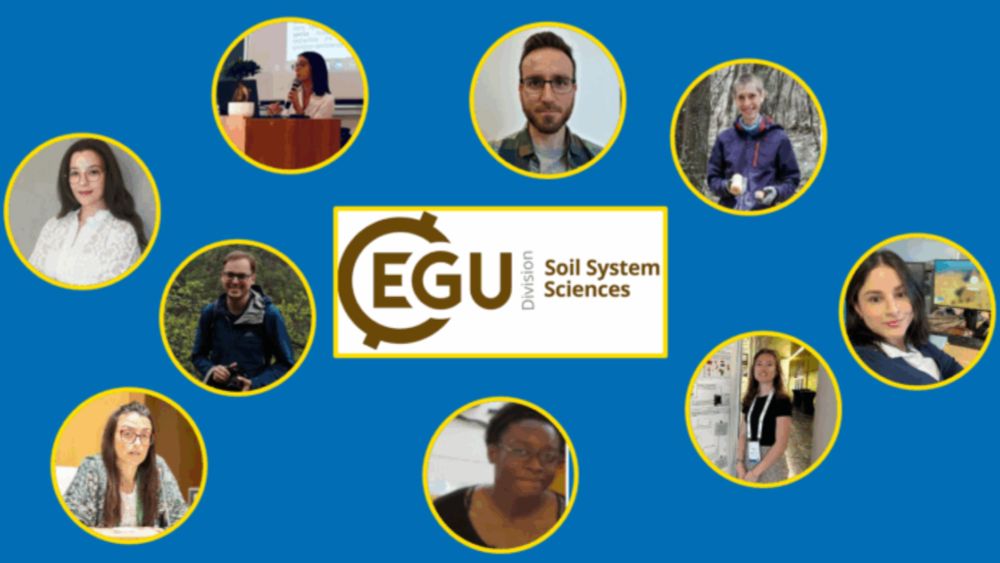
Soil System Sciences
A blog hosted by the European Geosciences Union
🌱 Meet the SSS ECS Team! 🌍
We’re excited to introduce the ECS Team of the EGU SSS Division!
They’re shaping the future of soil science through research, community building & outreach.
👉 Learn more in our first blog post!
🔗 blogs.egu.eu/divisions/sss/
#SoilScience #EGU_SSS #ECS #ScienceCommunity
22.07.2025 09:49 —
👍 11
🔁 6
💬 0
📌 0
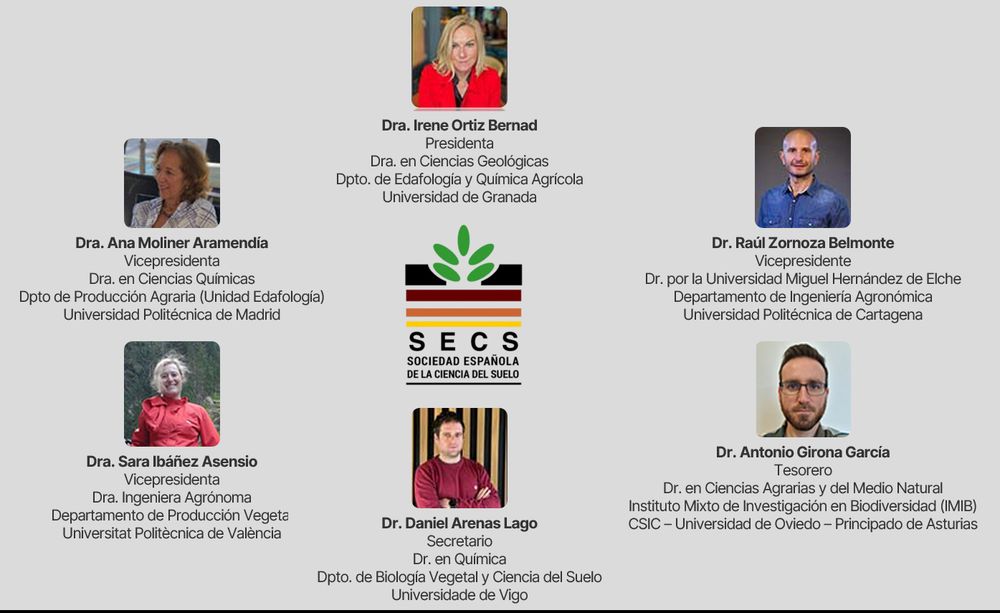
✨ La #SECS emprende esta nueva etapa con gran ilusión y compromiso por el estudio y la divulgación de la #CienciaDelSuelo. ¿Quieres saber más sobre nuestra sociedad y conocer a la nueva Junta Directiva?
🌱 ¡Síguenos en secs.com.es y forma parte de esta comunidad apasionada por los suelos!
21.07.2025 07:26 —
👍 5
🔁 1
💬 1
📌 0
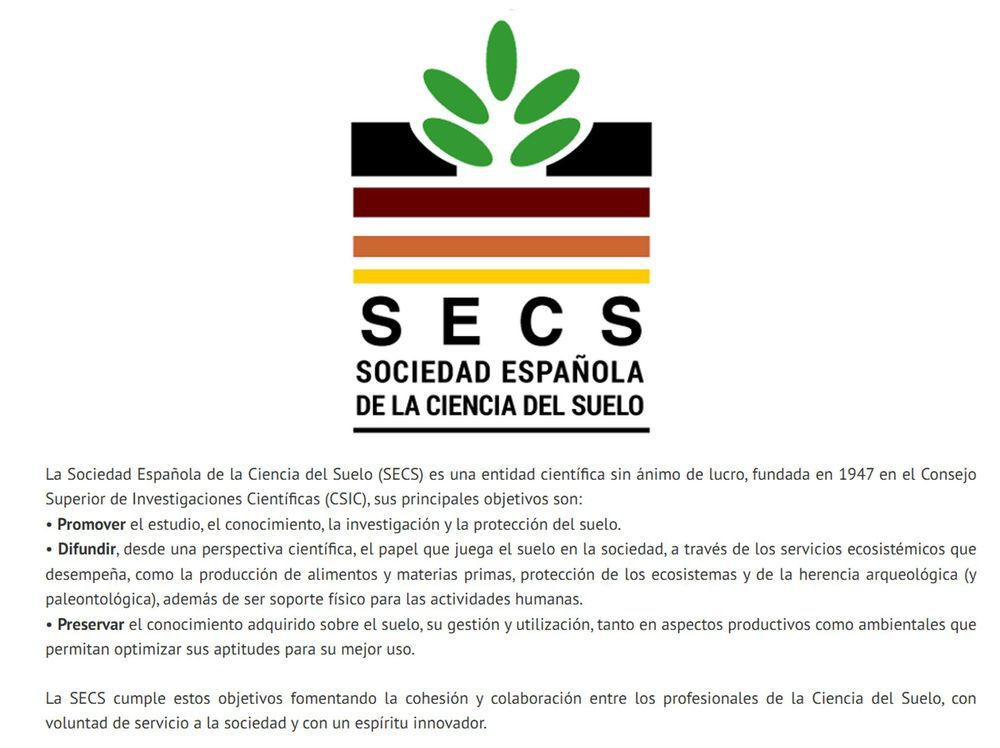
🌱 La Sociedad Española de la Ciencia del Suelo ya está en Bluesky! Síguenos para conocer avances, eventos y noticias sobre suelos. Más info: www.secs.com.es
15.07.2025 11:48 —
👍 5
🔁 1
💬 1
📌 0
This is a really unique and exciting opportunity for a full professorship in Vienna. Come be my colleague @ter-cemess.bsky.social and join a fantastic group of scientists!
07.07.2025 13:59 —
👍 13
🔁 9
💬 0
📌 0
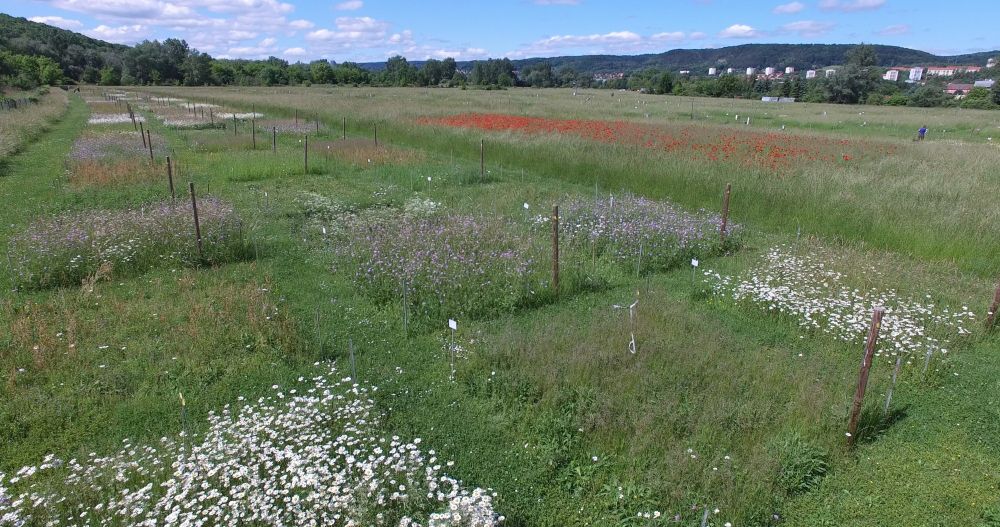
(c) The Jena Experiment
➡️Here's also a summary of our article on how
#plant-diversity effects on #soil #C storage differ across #ecosystems depending on #POM+#MAOM:
www.idiv.de/plant-divers...
Article doi.org/10.1038/s414...
@natcomms.nature.com @idiv-research.bsky.social
@charlesuni.cuni.cz @akademievedcr.bsky.social
07.07.2025 07:46 —
👍 11
🔁 3
💬 1
📌 0
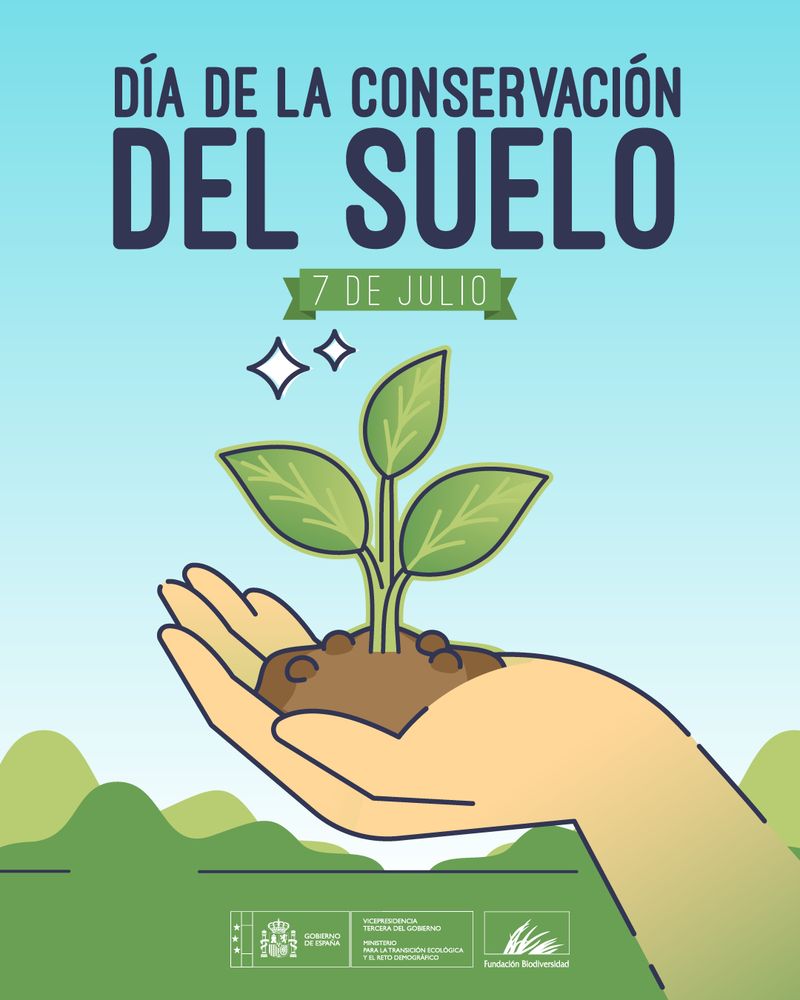
El 7⃣5⃣ % del suelo del planeta está degradado 🌍
Y no hablamos solo de tierra:
🥔 Aporta el 95 % de los alimentos que consumimos
💧 Almacena y limpia el agua
💨 Captura CO2
🐜 Hogar de millones de especies
💊 Fuente de compuestos medicinales
#DíadelaConservaciónDeLosSuelos
07.07.2025 07:53 —
👍 6
🔁 3
💬 0
📌 0
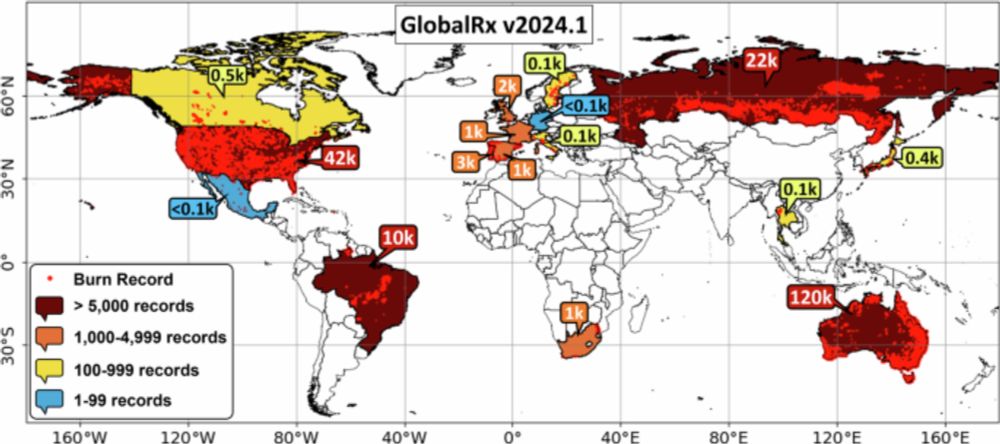
A global assemblage of regional prescribed burn records — GlobalRx - Scientific Data
Scientific Data - A global assemblage of regional prescribed burn records — GlobalRx
New study from my group with stellar international team.
A multi-national dataset of prescribed #fires compiled and standardised from national records, with contemporaneous #weather conditions, land cover, fuel bed type, ++, included with each record.
www.nature.com/articles/s41...
02.07.2025 07:36 —
👍 32
🔁 11
💬 1
📌 3
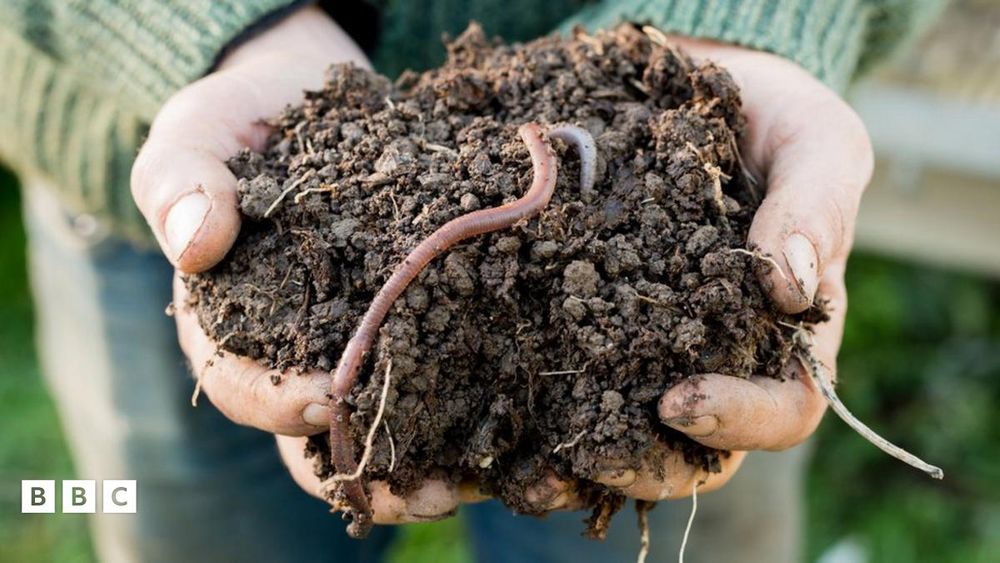
Soil sounds: Why scientists are listening to 'noisy' worms
Researchers have been studying the sounds of the underground.
🔊 Soils make noise!
Scientists have recorded the sounds of roots growing and worms moving underground.
The research, led by the University of Warwick, was even featured by the BBC!
👉 www.bbc.co.uk/newsround/68...
It’s a hidden symphony of soil life!
#SoilScience #EGU #ECS
30.06.2025 11:07 —
👍 8
🔁 2
💬 1
📌 2
Thrilled to be part of this exciting new project! 🚀 The Journal of #Pyrogeography launched this week and is now open for submissions. We explore how #fire interacts with #climate, #ecosystems & #society, welcoming diverse research from across the natural & social sciences. 🔥🌍
26.06.2025 11:42 —
👍 2
🔁 1
💬 0
📌 0

Division on Soil System Sciences
EGU, the European Geosciences Union, is Europe’s premier geosciences union, dedicated to the pursuit of excellence in the Earth, planetary, and space sciences for the benefit of humanity, worldwide.
Are you an early-career researcher in soil science? 🌱
Join the EGU Soil System Sciences ECS mailing list to stay updated!
📰 Blog posts
📢 Events & opportunities
✨ Community news
🔗 Sign up here: www.egu.eu/sss/
Let’s grow the soil science community together 🌍
#SoilScience #EGU #ECS #SoilResearchers
23.06.2025 11:03 —
👍 3
🔁 4
💬 0
📌 0
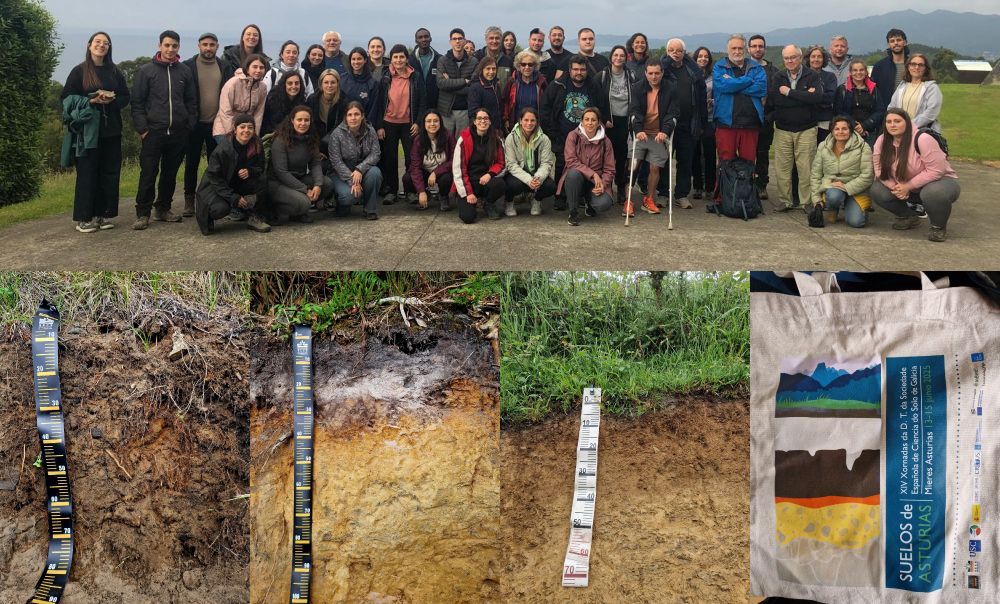
Back from the XV Soil Meeting of the Galician division of the Spanish Society of Soil Science in #Asturias. We dug into everything from mine-affected #Cambisols to #Technosols, with some stunning #Podzols in between. Always a joy to learn in the field and connect with passionate #soil scientists
16.06.2025 08:11 —
👍 5
🔁 1
💬 0
📌 0
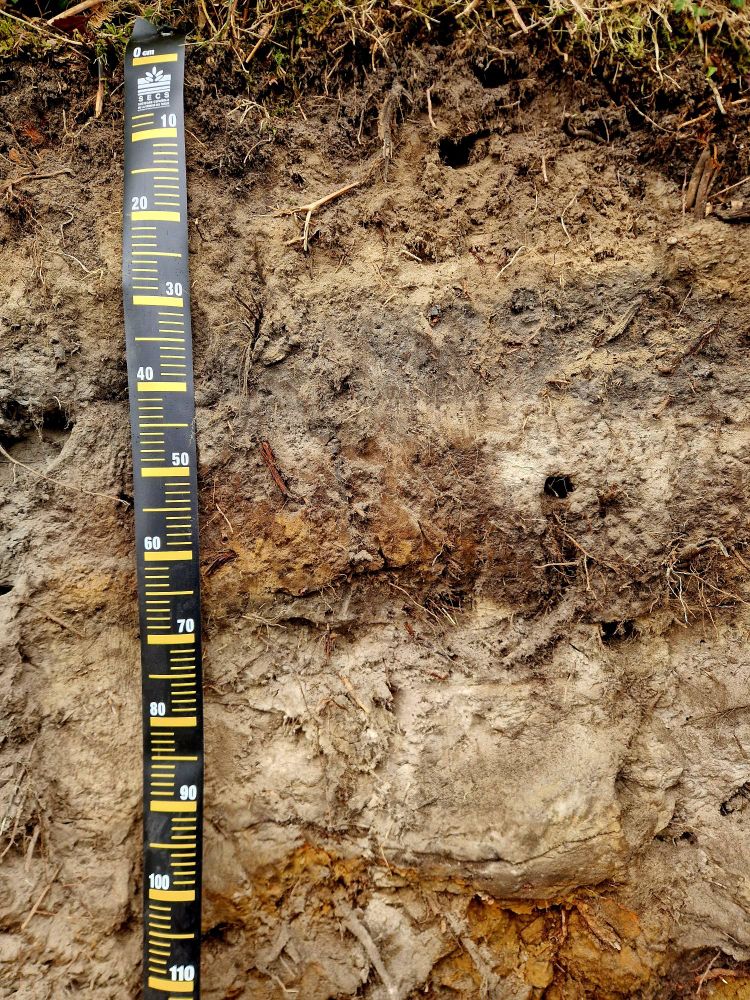
Things got more complicated, finding profiles with several cycles of podzolization 🧐
15.06.2025 17:00 —
👍 1
🔁 0
💬 0
📌 0
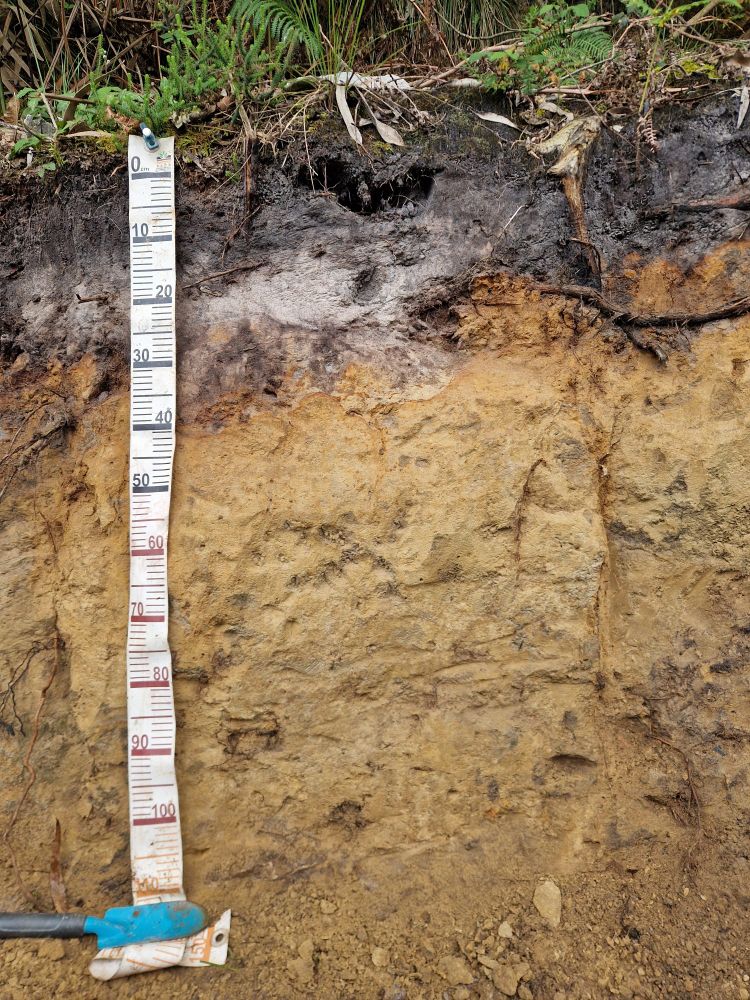
Visiting some beautiful #podzol today in Asturias, during a field trip organized by the Spanish Society of #Soil Science
15.06.2025 09:06 —
👍 6
🔁 1
💬 1
📌 0























